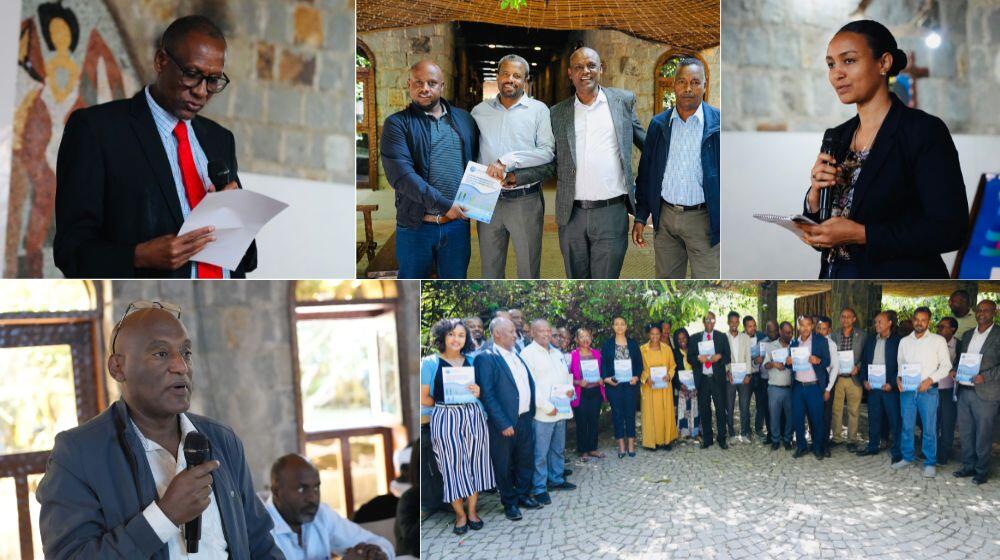The Ethiopia Family Planning Costed Implementation Plan (FP-CIP) for 2023-2030 was officially launched on December 28, 2023, in Bishoftu town, Oromia region. The launching ceremony was attended by Dr. Meseret Zelalem, Maternal, Child, and Adolescent Health Services Lead Executive Officer, regional health bureau representatives, civil society organizations (CSOs), and stakeholders.
The plan sets a common vision for the government and partners with clear high-impact priorities and timelines for achieving key milestones by 2030. It also details the necessary program activities and the costs associated with the national goals to reach a contraceptive prevalence rate of 54% by 2030.
"This plan is our guideline for years to come. It is a roadmap for improving service delivery, accessibility, and availability of family planning commodities. This plan addresses equity and regional access disparities and how to address them. It lays out activities to increase demand for contraception and create an enabling policy environment to raise the necessary resources," Dr. Meseret said.
Dr. Meseret has emphasized that the plan is in line with the Compact Agreement signed on October 27, 2022, with UNFPA to increase domestic financing for family planning. ‘’The Ministry of Health and the Ministry of Finance have signed a Country Compact with UNFPA to gradually and sustainably increase local funding for family planning. The implementation plan launched today is an assessment tool to track the progress toward the goal of increasing funding for family planning by 2030’’.
The plan states to increase the domestic government budget share for family planning commodities by 1% each year (starting from 2022/23) while support from potential partners such as UNFPA declines every year.
In his remarks, Dr. Awoke Tassew, UNFPA's Assistant Representative said the plan is a key milestone in the long partnership between UNFPA and the Ministry of Health. "This strategic plan outlines all of the initiatives and interventions to ensure the availability of high-quality family planning commodities, as well as the provision of comprehensive family planning information and services at all levels of the healthcare system. The goal is to ensure that women, men, and adolescents who need these services can access them easily and receive the highest quality care possible."
The 2023–2030 FP-CIP is aligned with the Health Sector Transformation Plan (HSTP-II) goal of increasing the modern contraceptive prevalence rate (mCPR) amongst married women (MW) from 41 percent to 54 percent and reducing the unmet need for FP from 22% to 17% by 2030.
Private sector involvement will increase from 12% to 15% by 2030 and the provision of FP service as a component of community-based health insurance (CBHI) benefits package by 2024/25. Ultimately, it aims to increase the level of secured funding for Family Planning commodities from 48% to 62% by 2030.
The cost, including a detailed regional breakdown from 2023 to 2030, is estimated at $513 million (about ETB 28 billion).


